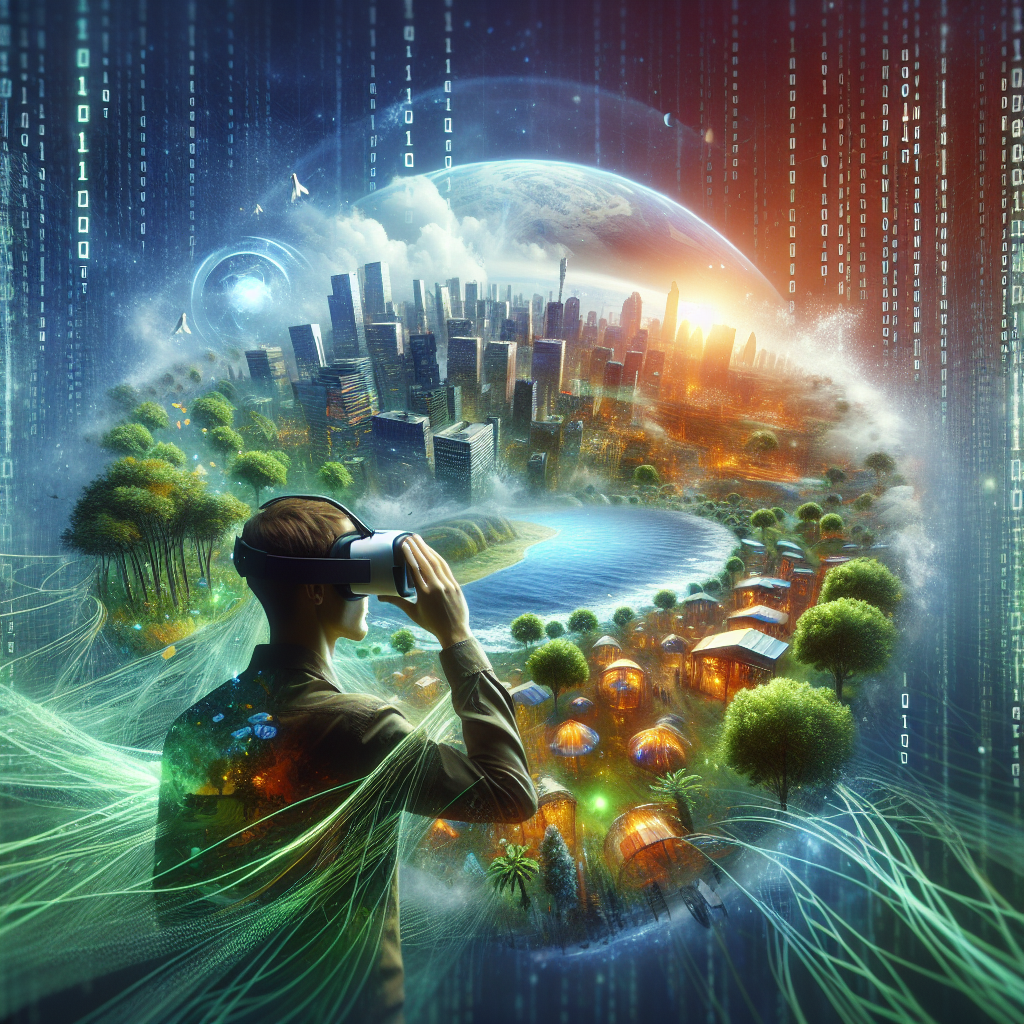The rapid evolution of technology has catapulted platforms for virtual reality, also known as VR, into an explosive period of growth and development. These platforms, like HTC Vive, Oculus Rift, Playstation VR and many more, offer a fully immersive 3D experience that unlocks an infinite array of possibilities not only for the gaming industry but also in diverse fields such as healthcare, education, tourism, real estate, and even social networking.
Virtual Reality in Gaming
The gaming industry is among the most prominent beneficiaries of virtual reality technology, offering a radically different and immersive gaming experience. Games designed for VR provide a level of immersion that is incomparable to the traditional gaming setup. Whether navigating through extraterrestrial terrains, fighting off hordes of zombies, or simply experiencing everyday life in a different perspective, VR has the capability to provide the most realistic and encompassing gaming experiences.
Educational Opportunities in Virtual Reality
Education is another field greatly impacted by virtual reality. Through VR, learning is no longer confined within the four corners of a classroom. Now, students can virtually travel to the farthest ends of the universe, venture deep into the human body, or travel back in time to some of the most significant historical events. It’s a revolutionary tool that opens up limitless opportunities for interactive, immersive learning.
Healthcare and Virtual Reality
Virtual Reality has also made significant strides in healthcare. Professionals use it to simulate surgeries for training purposes, exposing the potential surgeon to a variety of different scenarios without the risk of harming actual patients. Therapists also utilize VR in treating anxiety disorders and phobias by gradually exposing patients to their fears in a controlled environment.
The Impact of Virtual Reality on the Tourism and Real Estate Industries
Tourism and real estate industries are also reaping the benefits of virtual reality. For travel, VR offers 360-degree tours of tourist spots before the actual trip, which can be a deciding factor for potential tourists. In real estate, VR allows prospective buyers to explore properties in 3D, giving them a realistic feel of the space even if they’re thousands of miles away.
Virtual Reality in Social Networking
Even social networking is experiencing the impact of VR. Social VR platforms like VRChat and AltSpaceVR offer users a different way of interacting and socializing. It permits users to create avatars, explore virtual worlds, and participate in community events— all in a 3D environment.
Conclusion
As we continue to grow in the Digital Age, so do the possibilities with virtual reality. Our understanding and utilization of it are just scratching the surface of its potential. From gaming and education to healthcare, and from tourism to real estate and social networking, virtual reality is rapidly transforming the way we experience the world. It is poised to revolutionize many facets of our everyday lives, allowing us to push the boundaries of what is possible.
Frequently Asked Questions
1. What is virtual reality?
Virtual reality (VR) is a computer-generated environment that lets you experience a different reality. A VR headset fits around your head and over your eyes, and visually separates you from the space you’re physically in.
2. How does virtual reality work?
Virtual reality employs a headset that tracks your head movements and provides a 3D imagery on its screen to create a lifelike experience. It can also employ other equipment like gloves for fully immersive experiences.
3. How is virtual reality used in education?
Virtual reality is a versatile tool in education. Teachers can use VR to immerse students in a 3D environment that showcases complex scientific principles, historical events, or far-reaching places that are otherwise unreachable.
4. What is the role of virtual reality in the healthcare industry?
Virtual reality in healthcare is used for training, diagnostic purposes, patient treatment and rehabilitation. It can simulate surgeries for medical training or can be used in therapy sessions acting as a form of exposure therapy.
5. How does virtual reality affect the gaming industry?
Virtual reality offers a more immersive way of gaming. It enables users to be a part of the game by moving and looking around, interacting with features and objects, thereby taking the gaming experience to a whole new level.

